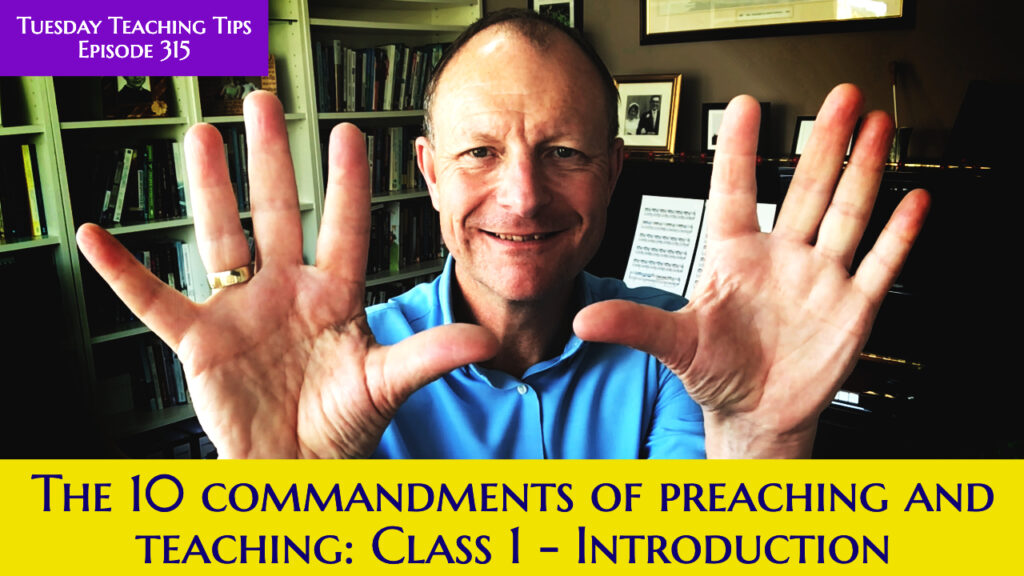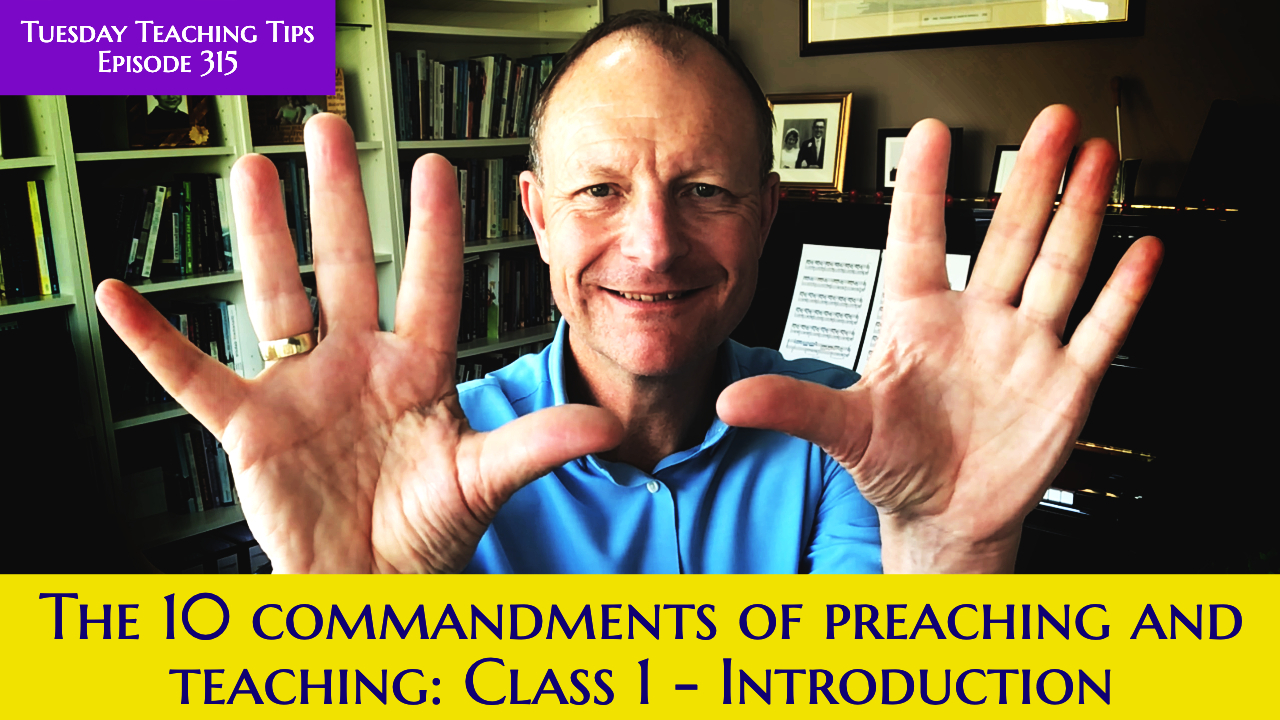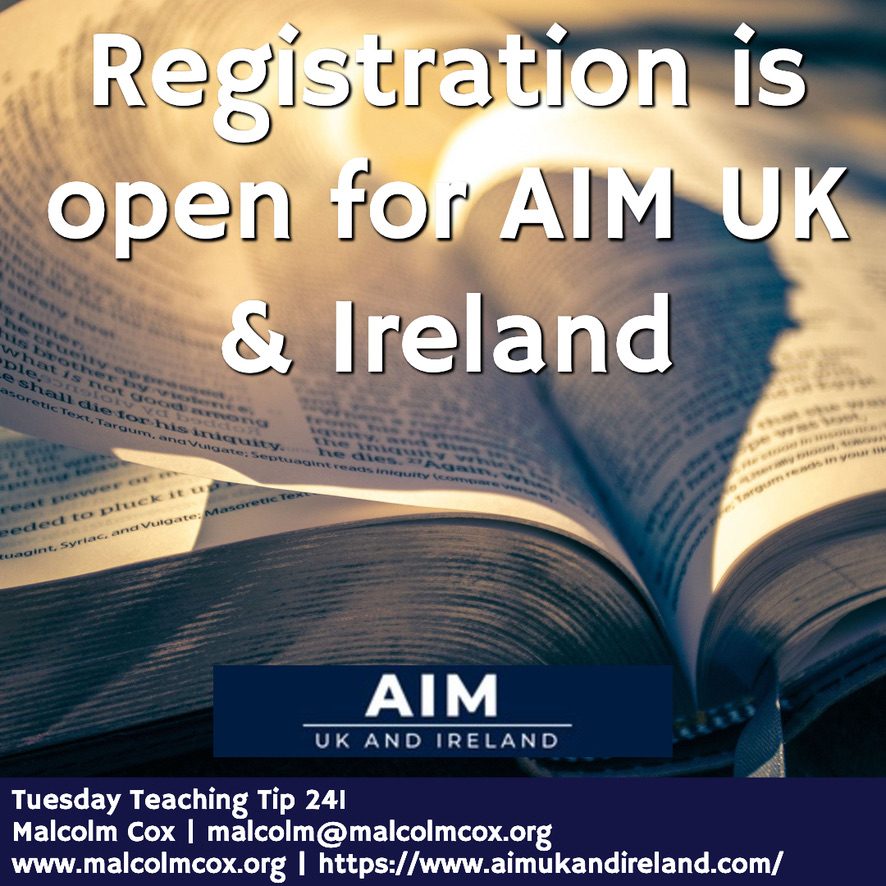
Introduction
Do you ever wonder if your teaching is effective? Do you sometimes sense your preaching might not have the impact you had hoped? If so, you are like 99% of the speakers I know. The other 1% are deluded.
“At Iconium Paul and Barnabas went as usual into the Jewish synagogue. There they spoke so effectively that a great number of Jews and Greeks believed.”
(Acts 14:1 NIV11)
While it is not healthy to be paranoid about our effectiveness, nor can we ever measure it empirically, there is a place for considering whether we have set ourselves and our listeners up for success. How to be ‘effective’ — not just skilled or accurate — is what we will explore in the next 10 episodes of these teaching tips.
The Plan
Our material is based on something my friend, and excellent teacher, Rob Payne sent me. His adapted ‘10 commandments of effective teaching are based on an article from Douglas Jacoby’s site. You can find the original here: https://www.douglasjacoby.com/the-ten-commandments-of-teaching-by-brian-fontaine/
Today’s episode is an introduction to the series. Let me tell you the 10 topics we’ll be covering. There are:
- 1st Commandment: Know thy content, backward and forward, for your students’ respect and attention begins here.
- 2nd Commandment: Proper Planning and Preparation Prevent Poor Performance.
- 3rd Commandment: Ohhh, Ahhh, Wow! Get and Hold.
- 4th Commandment: Respect the time.
- 5th Commandment: Great learning is more important than great teaching.
- 6th Commandment: Every Learner is Different so… Differentiate.
- 7th Commandment: They Won’t Care How Much You Know Until They Know How Much You Care.
- 8th Commandment: Enthusiasm is infectious!
- 9th Commandment: It doesn’t matter how well you taught it, it matters how well they learned it.
- 10th Commandment: Tests aren’t just for students.
I would like to know what you think of these ‘commandments’. What is missing? Which ones interest you the most?
The plan is to deliver ‘bite-sized’ recordings that can be used for personal reflection and group discussion. Tell me how you plan to use this material.
Conclusion
Please add your comments on this week’s topic. We learn best when we learn in community.
Do you have a question about teaching the Bible? Is it theological, technical, or practical? Send me your questions or suggestions. Here’s the email: malcolm@malcolmcox.org.
If you’d like a copy of my free eBook on spiritual disciplines, “How God grows His people”, sign up at my website: http://www.malcolmcox.org.
Please pass the link on, subscribe, and leave a review.
“Worship the LORD with gladness; come before him with joyful songs.” (Psalms 100:2 NIV11)
God bless, Malcolm


